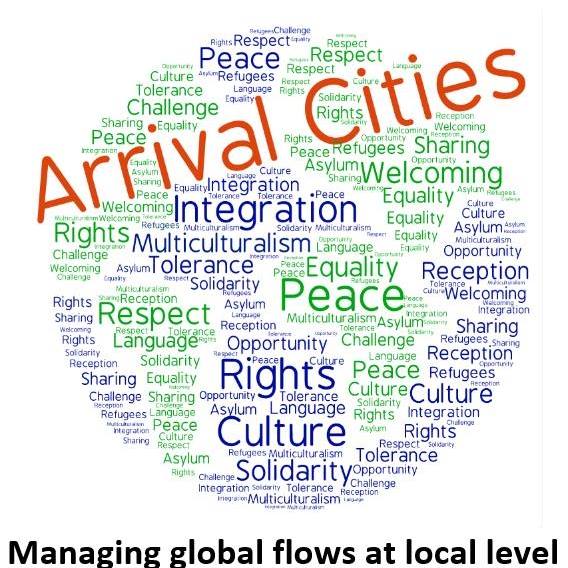Thessaloniki, a City at the frontline for migrants arrivals
Edited on
02 October 2018In the framework of its Action Plan the Municipality of Thessaloniki created an Urban Working Group to integrate all the City services and projects dedicated to migrants. The Urban Working Group is composed by a wide number of local stakeholders which manage services and projects dedicated to migrants.

In the last three years the Munucipality of Thessaloniki has faced huge challenges in managing global migration flows at local level. The City is only 80 Km of distance from Idomeni and is one of the main crossing point for migrants in transit to Europe. The urgent challenges concern the transit migration of refugees, but there are also longer term challenges for integration of the city’s settled migration population. In order to plan for durable solutions and effective urban response to integration, the Municipality of Thessaloniki is coordinating the development of an Integrated Action Plan to lead the Municipal response.
Since May 2015 The Municipality is leading the REACT programme (Refugee, Assistance, Collaboration, Thessaloniki) that is operating on the basis of a protocol of cooperation among the Ctiy and a series of national and local organization supporting migrants and refugees and two smaller Municipalities. This programme aims to provide support to refugees and in particular to individuals who have been selected, on the basis of their vulnerability (families with children, people with chronic diseases, the elderly, etc.), housing in apartments while their relocation or family reunification request is being processed. The programme, which is funded by the United Nations High Commission for Refugees, in partnership with the European Commission, is building its capacity up to 880 places in the City (in addition to other housing initiatives).
Within the framework of the City Action Plan the Municipality created an Urban Working Group to coordinate the urban response at the City level with the participation of 15-25 different actors and stakeholders involved in the provision of a wide range of services to refugees. The Urban Working Group is co-chaired by the Municipality together with the representatives of the UNHCR and has the aim to coordinate the urban response to migrant’s arrivals, to develop commonly agreed guiding principles, as well as providing inputs to the development of City level integration plans.
This March the members of the Urban Working Group, among which there are also the members of the URBACT local support group, met in order to explore in detail the thematic area of health services for refugees. The working group on health discussed main problems, gaps and possible measures that can be included in the Integrated Action Plan.
In the meeting held in June the Urban Working Group discussed about possible solutions to link together all the relevant activities that the Municipality has on going, in order to better integrate the services provided and have a clear picture of what needs to be improved.
The last meeting of the Urban Working Group was held at the end of July, the meeting has seen the participation of more than 50 delegates from the organizations and local authorities involved in developing the City Action Plan. The aim of this meeting was to involve the stakeholders in the process of raising awareness of the different interrelated work streams within the municipality: URBACT: Arrival Cities, EuroCities, Resilient Cities, the SEM (Migrant Integration Council) and the Urban Working Group, that have common goals and activities as well as their own potential funding streams. The aim is to foster the collaboration between the Municipality and the UWG members in order to make the activities more sustainable and integrated and to strengthen the capacity of the municipality and public authorities to go forward.
In order to achieve these objectives the participants agreed to develop a series of actions aimed at ensuring a better coordination strategy and to capitalize and share the experiences and lessons learned within their operative network before the next UWG meeting.
 Submitted by cvestrini on
Submitted by cvestrini on
